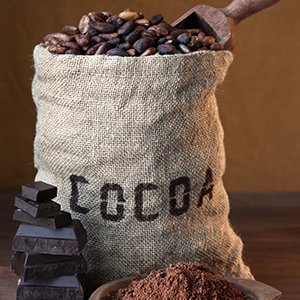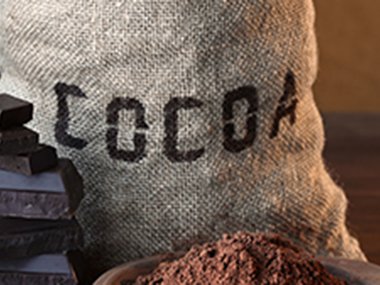October 28 is National Chocolate Day in 2020. Maybe you plan to celebrate with a piece of fudge, chocolate chip cookie, slice of German chocolate cake or even a classic plain chocolate candy bar.
That's OK because chocolate is a healthful food, right?! Maybe that’s what you’ve heard, but is there any truth to that?
There are hundreds of legitimate research studies that link chocolate and cocoa to positive health outcomes. Consumption of chocolate has been shown to positively affect cardiovascular functions (like blood pressure), metabolic functions (like insulin signaling), cognitive functions (like improving thinking and preventing dementia) and more.
However, there are a couple of key problems when we consider this research.

Image credit: Getty Images
A lot of what we know about research studies tends to come from media hype about them, and reporters usually exaggerate the findings and can leave out a lot of caveats to make the story sound better. For example, most researchers aren’t feeding their participants chocolate candy bars, but instead use cacao supplements when conducting the chocolate-related research. The powdered cocoa beans in a pill allow researchers to give really high doses, and people don’t object to the bitter taste of cocoa beans.
Some of these chocolate studies are funded by the food industry. This is problematic because we know scientific research funded by a particular industry is 6 times more likely to turn out favorable for that industry.
What’s more, there’s this thing called the “file drawer effect.” Basically, if you do a study and find no difference between your control and experimental group (in this case the chocolate group), it isn’t really exciting enough to be published -- even in a dry research journal. This means there could be ten studies that all show chocolate has no effect on health, but one that does, and only the one that does gets published. That biases the information available and changes our perceptions of the truth.
Next, let’s talk about antioxidants, since that’s usually the reason chocolate is considered healthy.
Antioxidants protect your cells against free radicals created by the sun, pollution, junk food and basically most of your day-to-day life. Free radicals rip you apart from the inside out, leaving you looking and feeling exhausted. Antioxidants are trying to put you back together at the cellular level, and can help with everything from heart health to younger-looking skin.
Antioxidants are found in lots of foods, including cocoa, but the truth is that metabolizing sugar generates a ton of free radicals. Most chocolate candy is loaded with sugar and are low in actual cocoa, so you’re not getting enough antioxidants to counteract the ill effects of eating a candy bar, much less healing the damage of chronic high blood pressure.
Here’s the bottom line: we can maybe consider small amounts of unsweetened chocolate that’s high in cacao to have some positive health benefits. But, as this chocolate is likely to taste very bitter, it’s probably not the first thing you’d reach for when trying to get a chocolate fix.
Whether we’re talking about antioxidants or other qualities, the not-so-sweet fact is chocolate consumed as most of us eat it (in candy and desserts) doesn’t qualify as health food.
P.S. if you do want to treat yourself with some chocolate to celebrate National Chocolate Day, here's a recipe for Chocolate Avocado Truffles from our Boost! kitchen. Enjoy!
The Museum is hard at work helping you to discover your world despite dramatically reduced financial resources. If you'd like to help us continue this work, click here to learn how.


